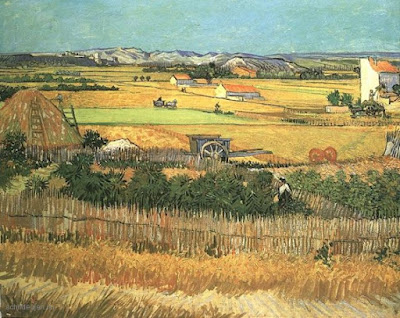This is for Easter and the time of the year when many are reminded of
their beliefs. In the last few millennia humanity has collected a number of
‘Isms to direct the mind, explain our behaviour, and give us comfort in times
of trial.
To these might be added “Ics”, or “Ians”, a number of “Ologies” of one
sort or another. Then there are
“Mania’s”. These are not exclusive and are subject to interpretation. My Ism is
your Ology, your Ology is their Mania, and their Mania is my Ism. I hope this
is quite clear.
I will stick to Isms, because I have had a lot of them in my time, some
enforced, others as fashion, and now and again because one had a passing
attraction, like a steam hauled train going through when you are waiting for
the dreary modern rattletrap for which you have a ticket.
Some of the most fervent and anxious opinions out there in the media and
on the net are all to do with Isms. All I need to do is mention one in
particular and express a slight reservation, and then there will be a thunder
of hooves in the distance, or worse a lot of mails telling me how wrong I am.
The essential trouble with an Ism that has been around a long time is
that when it is further from its roots, the human condition changes, and as
other radical changes occur not only does it morph into something quite
different, but these stresses in turn spawn Schisms, so an Ism has many
sub-Isms.
This is complicated, if you do not believe me study ecclesiastical
history. It is said that at one time in
Yorkshire the proliferation of dissenting chapels was such that in some places
almost every family ran their own chapel. It exists elsewhere, but probably I
have already upset too many people.
That is just religion. In
economics and commerce it becomes a lot more serious and emotional. Even the
flagellants of old cannot match for fervour the proponents of this Ism or that
Ism relating to the ordinary business of life and money.
Capitalism, Socialism, Communism, Corporatism, Fascism (nowadays
sometimes disguised as Nationalism) all these and more are on offer for those
who seek some kind of explanation for what the hell is going on.
At present we have a government that has come to believe on the basis of
whatever Ism they employ; this is a matter of confusion and disagreement; that
moving digital money about rapidly by computer is the key to future and wealth
and happiness.
At least for the few who are party to it, and can draw down the
benefits. Some call this Capitalism, and if so, it has certainly morphed, it is
very different from the pre Limited Liability form, and the early 20th
Century industrial age types.
One school suggests that the word now relates to systems that try to
maximise the rents on what they own, and this entails the exploitation of
whatever and whoever they can get their hands on. It might explain the relapse in different
forms of bondage that much of present humanity endures.
If so then not only do self styled Capitalists have very different ideas
of what their Ism actually is and does, but the notion becomes incomprehensible
to everyone else.
So as an Ism it is now redundant, and we need to dream up a whole new
set of words or phrases to try to explain matters. Socialism and Communism have
had that problem. In our modern world this is not easy.
Once upon a time if someone had done enough swotting, written big books
that got circulated, and attracted enough interest and agreement, you could
have a new Ism established in a generation or two.
These days, you knock out something from a quick search of a few
Wikipedia entries and the odd bit or two from Google Scholar in the morning,
post it in the afternoon, then after adverse reactions and threats amend it in
the evening, but by the next morning it is dead in the water and you have to
start all over again.
This is not good news for philosophers or theologians, still less for
economists or social scientists. It does not affect politics, but those
practitioners have always had a flexible way of dealing with things.
At the dawn of the 21st Century; that is by the calculations
of some Isms; there are those with different dating patterns; perhaps it is
time for humanity to clear out the intellectual lofts, sheds, and cupboards of
what passes for all the whole world of theory.
If none of the old Isms are any use they represent obstacles to any
assessment of the human condition now and in the foreseeable future, whether
rational, emotional, spiritual, or even cynical.
We have only what we know, and that isn’t much, what we can judge
relating to the degree of perception as to what is going on around us, what our
instincts may tell us, and what any notions of morality may guide us.
So why not dump the lot? Perhaps
a sonic boom from a passing near earth object, or a blast of cosmic rays from some
distant galactic catastrophe, or perhaps simply the total crash of our
electrical supply systems from a bigger than usual solar flare might do the job
for us.
Oh dear, I have just contracted a new Ism. It is called Fatalism. Does anyone share my ideas? Imagine the T
Shirts, “Fatalism Is The Future” or “Fatalism Rules OK”.
If you can’t beat them, join them.

















